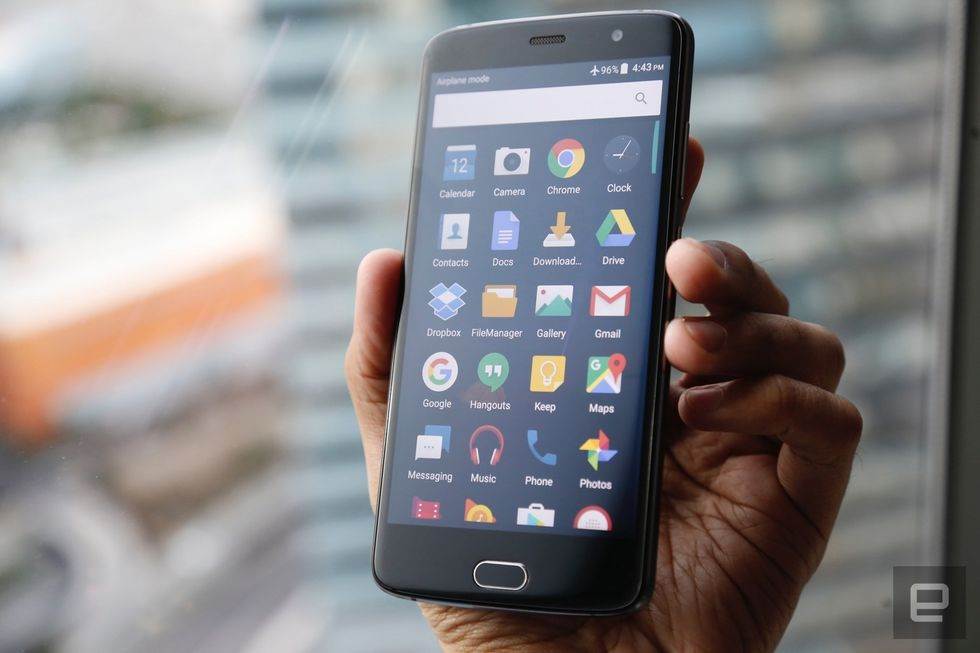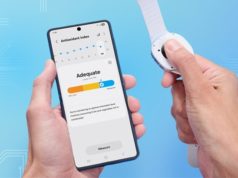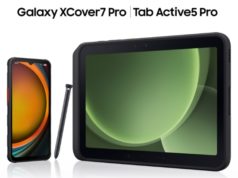First the Honor 6x, then the ASUS ZenFone 3 Zoom, and now the ZTE Blade V8 Pro. These phones being unveiled here at CES 2017 all sport dual cameras that let you take photos with a shallow depth-of-field effect similar to what you can do with the iPhone 7 Plus. The difference is, this week’s new devices generally cost much less than the iPhone (although we don’t know the ZenFone’s price yet), with the cheapest so far being the just-announced Blade V8 Pro. For $230, the handset offers a respectable set of features, including two 13-megapixel rear cameras, a 5.5-inch full HD display and an octa-core Snapdragon processor. From my brief experience with a preview unit, the V8 Pro feels sturdier than the Honor 6x ($250), and has a slightly better dual-camera implementation, to boot.
Gallery: Hands-on: ZTE Blade V8 Pro | 16 Photos

-

-

-

-
 +12
+12
First off, the Blade’s two cameras both have 13-megapixel sensors, which are sharper than the Honor’s 12-megapixel and 2-megapixel pair. This resulted in the Blade delivering more detailed pictures overall, and, at least during my brief trial, made for a more precise application of the bokeh (blurred background) effect. Like on the Honor, the Blade’s setting lets you adjust the intensity of the effect. Simply drag a slider up for a smaller aperture (more bokeh) or down for a wider opening (less bokeh). To be clear, you’re not actually changing the physical lens opening on the phone’s cameras; this is simply a software trick made possible by a monochrome sensor that captures more detail than a single camera would.
In addition to bokeh, the V8 Pro’s second camera has a fun monochrome mode that lets you see, in real time, your frame in black and white before you snap your photo. This is like having a live filter activated when you’re taking your shot, but ZTE’s execution here is better than most. The V8 Pro can also capture 4K video, and its 8-megapixel front camera captured crisp shots with accurate colors.

Below the V8 Pro’s 5.5-inch full HD display is a home button with an embedded fingerprint sensor, which is an uncommon feature for the price. The V8 Pro lets you open specific apps from the lock screen depending on what finger you scanned, which is a nifty application. My one gripe with the fingerprint sensor here is that you need to first press the button to wake up the phone before it will recognize your finger.
I liked the V8 Pro’s sturdy metal finish until I flipped over the device. The backplate has a rubbery texture, and that difference in finish from the rest of the phone makes it feel like the back can be removed, which is not true. Still, it makes the device easier to grip, and the phone still feels more premium than the similarly priced Honor 6x.

ZTE equipped the V8 Pro with a 3140mAh battery, which the company says will last longer than its flagship Axon 7. That phone lasted through about a day and a half of everyday use when I tried it out. That’s about the same as the 1.5 days to 2.5 days that Honor promises you’ll get out of the 6x, which has a larger battery. The V8 Pro uses an octa-core Snapdragon 625 processor, and comes with 3GB of RAM and 32GB of internal storage, which is expandable via microSD card.
This is the first time ZTE is bringing one of the Blade series of midrange smartphones to the US. The line, which is now in its eighth generation, has done well in Europe, Asia and Latin America, and the company confirmed it has sold more than 50 million Blade phones worldwide. You can pre-order the V8 Pro now, and it is slated to ship on January 11th.
Click here to catch up on the latest news from CES 2017.







